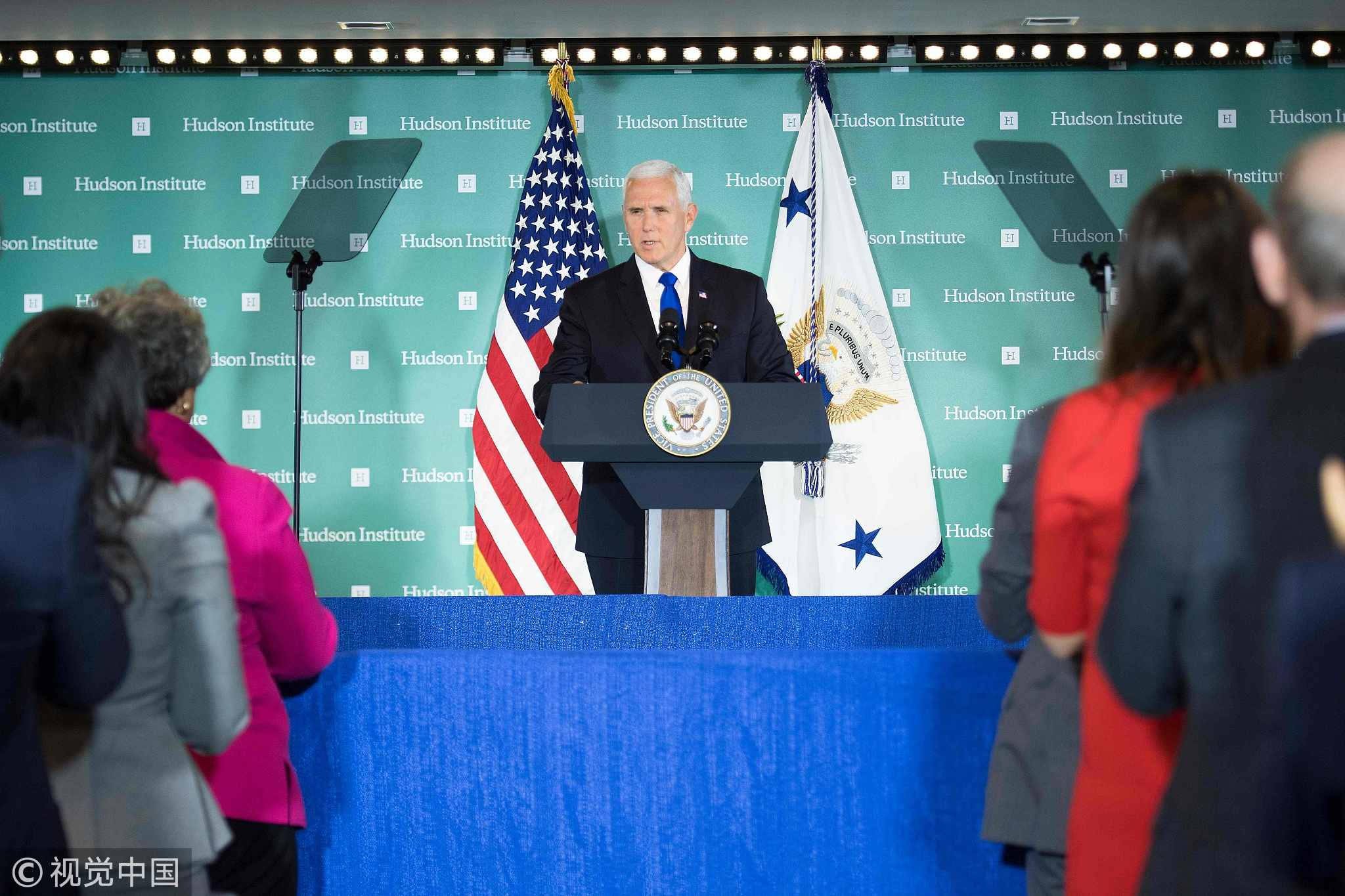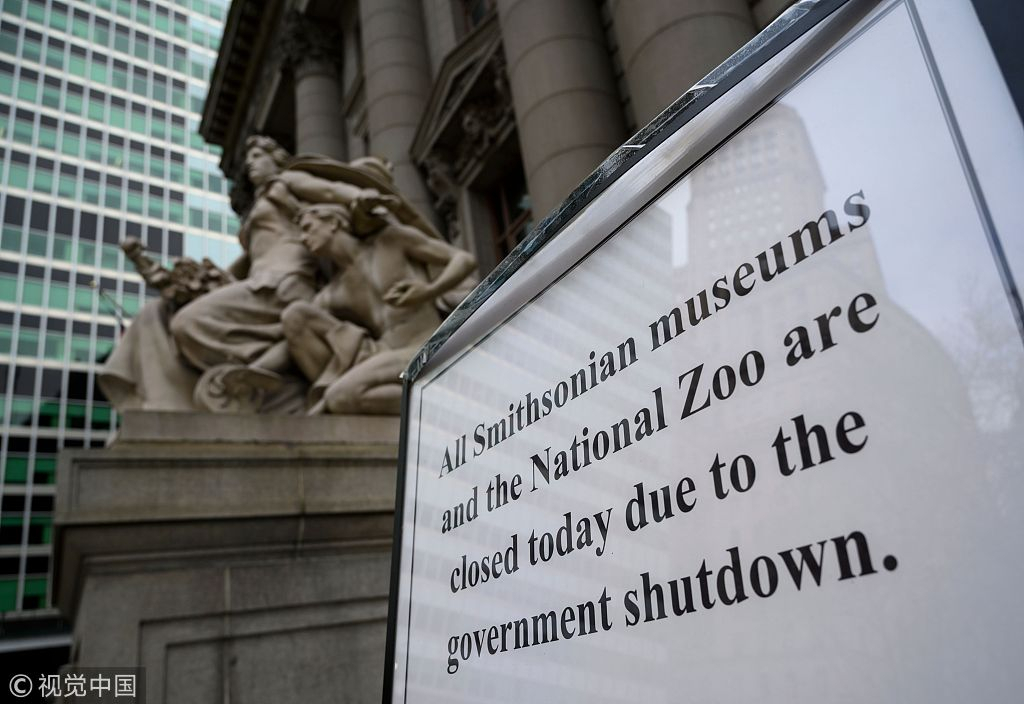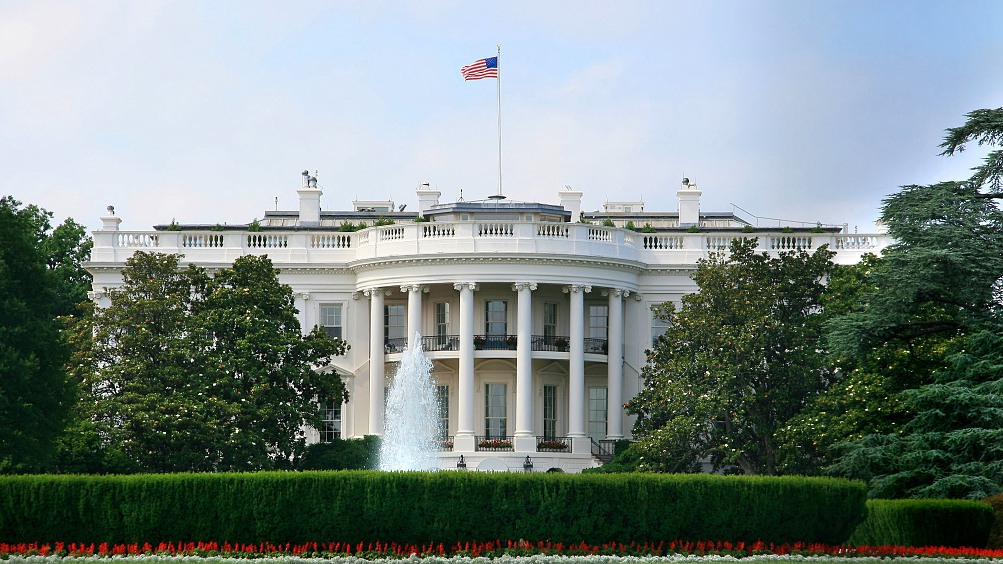Editor's note: Ken Moak, who taught economic theory, public policy and globalization at the university level for 33 years, co-authored a book titled "China's Economic Rise and Its Global Impact" in 2015. The article reflects the author's opinion, and not necessarily the views of CGTN.
Not too many people are against American ideals and values. On the contrary, most in the world admire the “beautiful country” (Chinese name for the U.S.). It is, for the most part, a very open society, welcoming over a million immigrants pursuing their dreams each year.
Increasing numbers of “visible minorities”, too, are reaching the apex of power in business, academia, the military, and government. Colin Powell, son of Jamaican immigrants of African descent, became the chairman of the joint chiefs of staff and secretary of state.

A farmer walks through his soybean fields in Harvard, Illinois on July 6, 2018. /VCG Photo
A farmer walks through his soybean fields in Harvard, Illinois on July 6, 2018. /VCG Photo
According to the latest Gallup and Pew Polls, most Americans disapprove of President Donald Trump's governing style of populism and protectionism. His trade wars against China and traditional allies have hurt America more than Trump admits, leading, in part, to the Republicans losing control of the House of Representatives in the 2018 midterm congressional election.
Americans come out in droves to protest racism and social injustice that Trump's populist policies espoused. For example, large numbers of people came out across America to protest against the rise of hate crimes in the first year of his presidency. The Federal Bureau of Investigation (FBI) reported that racially-motivated violence against non-whites (largely African-Americans) rose by 17 percent in 2017. The U.S. media revealed that the number was much higher.
Flawed political culture
However, the “good part” of America is scarred by its political culture and self-serving policies first planted by the “founding fathers” most of whom were businessmen and farmers. They and their descendants were mainly interested in the pursuit of wealth and power “at any cost” or by “any means.”
For example, the European-descendant establishment committed untold atrocities against the indigenous population, killing millions and banishing those who survived in “reservations” or barren lands located “out of sight and mind” of “mainstream” society.

Federal workers stand in line for a free hot meal at Andres in Washington, DC, as the restaurant reached out to locals providing ready-to-eat meals for federal families affected by the U.S. government shutdown, January 16, 2019. /VCG Photo
Federal workers stand in line for a free hot meal at Andres in Washington, DC, as the restaurant reached out to locals providing ready-to-eat meals for federal families affected by the U.S. government shutdown, January 16, 2019. /VCG Photo
The establishment blamed Native Americans for the heinous crimes. Fighting back to regain their lands was reported as “massacring” whites by the “savage redskins,” rallying public support for the government's retaliatory campaigns. Blaming the victims for the crimes America committed became the “new normal”. For example, the Hearst newspaper's reporting of Spain sinking a U.S. warship in Havana harbor rallied support for the American-Spanish War from which America gained part of Cuba and the Philippines.
This flawed political culture has not changed and indeed might have become more sophisticated, forming a “business-political complex” (BPC), consisting of powerful business groups and political parties to control the political agenda through lobbying and manipulating information.
The corporate-owned media, though professing “independent” reporting, is, in fact, the complex's cheerleader. For example, all U.S. news outlets report China and Russia are “threats” to the country and urge the government to get “tough” on them. The sensationalized reporting or “yellow journalism” might have played an important role in shaping the government's decision to increase “freedom of navigation operations” in the South China Sea.

U.S. Vice President Mike Pence addresses the Hudson Institute on the administration's policy toward China in Washington, DC, October 4, 2018. /VCG Photo
U.S. Vice President Mike Pence addresses the Hudson Institute on the administration's policy toward China in Washington, DC, October 4, 2018. /VCG Photo
Adam Smith, the “father of capitalism” was right, controlling the flow information does shape public opinion because most people do not have alternative sources of information.
Lobbying, hiring former senior government/military officials and scholars to influence policies, has become an effective platform in advancing the BPC's interests. Disguised as “protecting national security”, scholars and senior government officials routinely write in reputable journals such as Foreign Affairs that China has become more “aggressive”. Their assertion is largely based on China's push to build a strong military and innovative economy.
Lucrative lobbying and other post-retirement jobs might explain why serving senior government and military officials are “badmouthing” China and Russia. For example, the retired commander of the U.S. Pacific Command, Harry Harris, might have owed his job as ambassador to ROK for accusing China of “militarizing” the South China Sea during his tenure.
U.S. political culture and policies are beginning to bite
The world has changed since the 2008 financial crisis, flawed political culture and the policies it espoused are beginning to bite into the American economy, politics, and society. Withdrawing from the International Nuclear Forces Treaty (INF) has earned a tit-for-tat response from Russia and made European allies nervous. Moscow has suspended the INF treaty and can point missiles at countries that host U.S. ones.
Flawed U.S. political culture and policies also undermine economic growth. Overspending on the military takes away money from repairing America's aging and crumbling infrastructure. Trump's trade wars against allies and foes are slowly raising production costs and consumer prices because the tariffs are in fact taxes on U.S. goods.
A comment
Flawed U.S. political culture and its associated policies are no longer sustainable, China and Russia are equally determined to “promote and protect” their national interest. Since neither side would “blink” nor mount a pre-emptive strike against each other, producing more weapons is a waste of money that should be spent on socio-economic enhancing programs.

A sign is seen outside the closed National Museum of the American Indian in Lower Manhattan, amid partial U.S. government shutdown, January 12, 2019. /VCG Photo
A sign is seen outside the closed National Museum of the American Indian in Lower Manhattan, amid partial U.S. government shutdown, January 12, 2019. /VCG Photo
The aging and crumbling U.S. infrastructures require trillions of dollars to repair. Healthcare and education services need urgent funding to improve the health and quality of labor.
The world can only hope that Trump has come to the same conclusion, working with Chinese President Xi Jinping to reach an agreement on ending the trade war and putting the world's most important bilateral relationship back on track.
(If you want to contribute and have specific expertise, please contact us at opinions@cgtn.com.)






